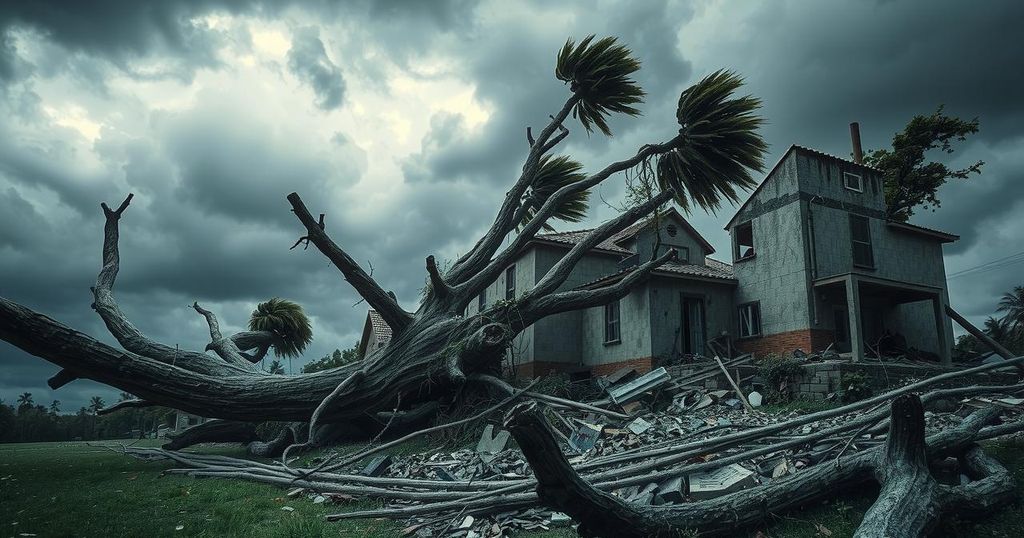Tropical Cyclone Chido and Vanuatu Earthquake: A Call for Humanitarian Aid
Tropical Cyclone Chido ravaged Mayotte, Comoros, and Mozambique, causing catastrophic damage and loss of life. Concurrently, a powerful earthquake struck Vanuatu, worsening the humanitarian crisis. Direct Relief is actively assessing needs and providing emergency aid to the affected areas, highlighting crucial health risks associated with natural disasters.
Over the weekend, Tropical Cyclone Chido caused widespread destruction across the Mayotte archipelago, Comoros, and Mozambique. This disaster was followed closely by a 7.3-magnitude earthquake striking Vanuatu, exacerbating the misfortunes of communities facing severe challenges. Cyclone Chido has been reported as the most powerful cyclone to impact Mayotte in nine decades.
In Mayotte, the storm produced winds exceeding 140 miles per hour and storm surges reaching 28 feet, devastating informal settlements, particularly those inhabited by undocumented migrants. Although the official death toll currently stands at 22, further assessments are likely to reveal higher casualty numbers as rescue efforts continue. Similarly, Comoros faced destructive winds and heavy rainfall that prompted President Azali Assoumani to declare a week of mourning.
Mozambique was not spared from the cyclone, enduring winds exceeding 160 miles per hour and torrential rains that severely damaged infrastructure, homes, and health facilities. In response to these challenges, Direct Relief is collaborating with French emergency services in Mayotte, Santé Diabète in Comoros, and the Ministry of Health in Mozambique to assess community needs and facilitate medical support where necessary.
In Vanuatu, the powerful earthquake resulted in extensive damage to homes and healthcare systems. As assessments progress, urgent needs are being identified, and Direct Relief has already commenced shipments of emergency medicines and medical supplies to assist the impacted communities. Resilience against these adversities is critical as aftershocks continue to pose risks to the affected population.
Natural disasters like cyclones and earthquakes jeopardize human health significantly, as they lead to immediate casualties and overwhelm local health systems. The secondary effects include increased susceptibility to disease outbreaks due to flooding, crowded shelters leading to communicable diseases, and disruptions in access to chronic health care, which can pose severe risks, especially to vulnerable populations such as pregnant women and infants.
Direct Relief has a long-standing commitment to disaster response, having provided essential medical resources during significant disasters globally. Their past efforts include delivering aid after Cyclone Idai and the earthquakes in Türkiye and Syria. Such preparedness underscores their capacity to provide timely assistance and coordinate with healthcare providers to alleviate the impact of disasters on affected communities.
As the aftermath of Cyclone Chido and the Vanuatu earthquake unfolds, Direct Relief is dedicated to ensuring that essential medical care reaches those in need. Their ongoing initiatives underscore the vital role that donations play in facilitating effective disaster response efforts.
This article discusses the recent devastation caused by Tropical Cyclone Chido and an earthquake in Vanuatu. It highlights the immediate human suffering, infrastructural damage, and potential health risks following these disasters. The involvement of Direct Relief showcases efforts to provide medical assistance and address the long-term health challenges communities face in the wake of such natural calamities.
In summary, the impact of Cyclone Chido and the earthquake in Vanuatu has resulted in significant destruction and human suffering. Direct Relief’s proactive response aims to mitigate health risks and provide necessary medical support to affected regions. The commitment to disaster relief remains paramount during these challenging times, emphasizing the importance of community resilience and humanitarian assistance.
Original Source: www.directrelief.org




Post Comment